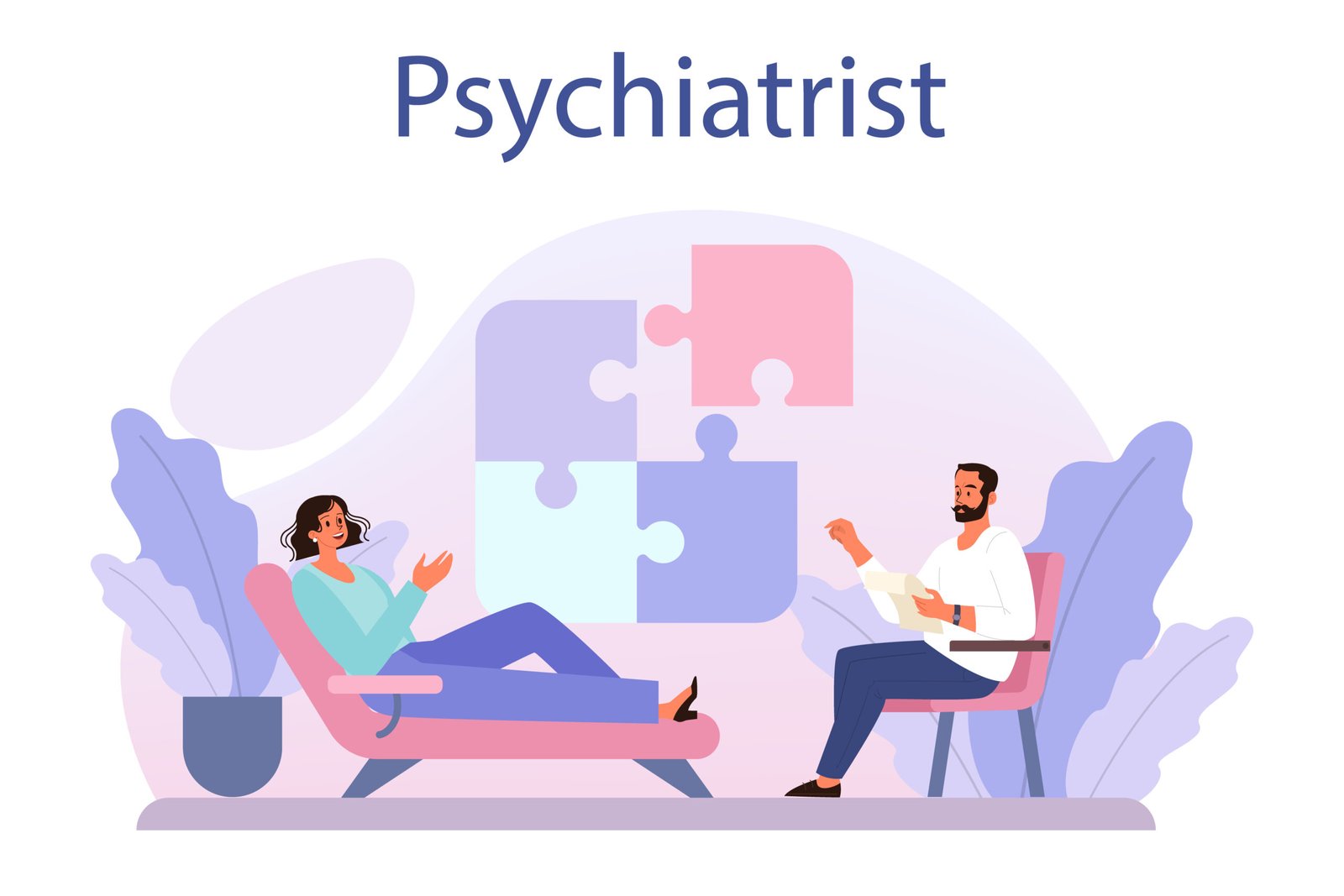How to stop Chronic Overthinking?
This article contains
Before approaching chronic overthinking, let us get acquainted with the subtle difference between chronic overthinking and general overthinking. When someone has been trapped in this condition for a very long period, and it significantly impacts their life, it is referred to as chronic overthinking. On the contrary, general overthinking is when a person thinks a little more about the future or past, but it has less effect on his day-to-day life.
But on the whole, both are nasty mental health issues.
Life is full of ups and downs, where we need to think a lot before reaching a decision. It’s perfectly normal to question the decisions before coming to a concrete solution.
What if we start spending unnecessarily extra time on decision-making and overanalyze a problem to the extent that we neglect other essential tasks in our daily routine?
In this condition, we stay stuck in our thought process most of the time of the day, and instead of finding a solution to the obvious predicament ahead of us, our thoughts feel muddled. That is a sign that we may be caught in the vicious cycle of overthinking.
Moreover, if we start spending most of our precious daytime dwelling upon mistakes made in the past or worrying too much about some future event, this may be an indication that we have developed this mental condition.
Chronic Overthinker
The general signs that indicate that you have been stuck in the loop of chronic overthinking are:
- Cannot stop the mind from thinking meaninglessly; it acts like a bucking bronco.
- Worrying about some future event to the extent that you can’t stop your mind from ruminating for 24 hours (while not sleeping).
- Replaying past bad experiences in the mind over and over again, not being able to stop the mind from doing so. Such repetitive thoughts about past experiences can fill a person with guilt.
- Can’t stop yourself from dwelling on some trivial issues while doing other daily tasks simultaneously.
- While in group settings, having a continuous fear of saying or doing something that might embarrass you in front of others (people who cannot focus properly while being in a group often face this problem).
- Carrying out simple tasks becomes difficult while surrounded by others due to heightened anxiety or discomfort.
- That person keeps thinking that he could end up in a fight with someone because of his own or others’ wrong actions (consequences of persistent negative thinking). They constantly stress about how they might respond in such scenarios.
- Overanalyzing aspects of your current life, such as:
- What kind of person are you?
- How do others see you?
- The way your life is going, is it good enough?
- Whether the work you are doing will show satisfactory results.
- Thinking all the time about matters that are not in your control.
- Mind thinks about what we do not even want to think about.
These signs may help in identifying if you are a chronic overthinker.
Other Consequences
Many studies have shown that thinking too much often gives rise to negative thoughts. These thoughts reduce the mind’s reasoning abilities, especially in some simple but new situation. While others may effortlessly complete a new task using their reasoning skills, overthinkers, due to their impaired reasoning, might respond differently.
A chronic overthinker usually starts thinking about worst-case scenarios of any situation, which are typically improbable or excessively extreme. In many cases, people develop suicidal tendencies after realizing that they are not normal and are incapable of becoming normal again.
Power to memorize things also diminishes over time as the side effects of dwelling on negative thoughts. One might find it difficult to recall names, dates, and concepts encountered just three or four days ago.
If not addressed in the right time, the condition will only get worse. It can lead to many other mental health conditions associated with chronic overthinking. Examples include:
- Social anxiety disorder (Social Phobia)
- Focus and concentration issues
- Anxiety
- Stress
- Depression
- Mental fatigue
And physical issues like
- Headaches (Stress for a long time can lead to migraine)
- Body fatigue
- Sleep disorders like insomnia, disrupts amazing healing process of REM sleep
- Weight gain
- Digestive issues (including nausea or sometimes diarrhea)

These mental health conditions are closely linked to overthinking. Stress, anxiety, and social phobias can also give rise to overthinking, and the reverse is also true. According to research, it cannot be predicted which condition starts in the first place.
In most cases, consumers do not even realize their mental condition and continue living with the habit of overthinking. An overthinker’s life passes them by, but they don’t even realize it.
This could continue for years. They may unconsciously develop other mental health conditions in parallel, which count as consequences of chronic overthinking (previously discussed).
This causes them to live a life full of fear, anxiety, and constant worry. Many joyful moments of life are lived under stress due to the distorted perceptions formed in the mind. This occurs as a result of repeatedly dwelling on those moments.
If you have reached this far reading this article, then you might be having some of these symptoms in yourself. A reason for your effort could be your desire to break free from this never-ending mental loop.
Getting out of this loop of overthinking might not be easy for some people, but persistence is the key to reaching every final goal.
Best ways to stop overthinking
Awareness about Triggers – There are certain moments and incidents that push our thoughts, and at that very moment, our mind starts ruminating. Such moments act as triggers for rumination. Rumination can be positive or negative, depending on the trigger. This is why keeping track of triggers is essential.
It might take time, but as we start noticing these triggers and thinking patterns, we can learn to avoid or manage such situations. Once we recognize that negative thoughts are merely the result of these triggers, it becomes easier to understand the root of the problem.
Journaling – It is a process of writing down one’s thoughts and feelings on a page to understand them more deeply. It can help in understanding the difference between normal thoughts and the brain’s exaggerated make up. It will help in tracking down the causes, symptoms and ways to cure them in a more systematic way.
When we know the causes behind stress and anxiety, then it becomes easier to make plans to dodge them.

Mindfulness – According to Google Dictionary, mindfulness is the quality or state of being conscious and aware of something. In simple words, it is the quality of paying complete attention to what is going on in our surroundings and within our mind. It is a fact that we cannot completely stop our mind from wandering, but if we are aware of thoughts we are on, we can press the pause button instantly.
Practicing mindfulness can improve performance in professional life and reduce stress and anxiety levels. Consistently practicing mindfulness can help develop the habit of processing our thoughts. It also becomes easier to identify triggers in our surroundings.
Meditation – It is an ancient technique that originated in India and is now being practiced by the whole world. This technique is mainly used to reduce stress and anxiety levels, but science has demonstrated many other vital benefits, such as developing concentration, controlling emotions, and increasing feel-good hormones.
Meditating is similar to mindfulness in many aspects. As we observe our breath and redirect our focus to it, we feel calm and relaxed. Consistently practicing this redirection strengthens our ability to concentrate on significant tasks in daily life.
In the beginning, meditating may not seem helpful because intrusive thoughts can disrupt focus on the breath. However, learning proper techniques under the guidance of a professional can help individuals achieve the best results.
Exercise – Research has shown that exercising four to five times a week benefits both physical and mental health. By exercising, our body releases endorphins, which are also known as the feel-good hormones (alongside serotonin and dopamine). Endorphins are released not only when the body experiences stress or pain but also during enjoyable activities such as moderate exercise, eating, walking, or other pleasurable experiences.
In addition to reducing stress levels, this practice helps boost energy levels and enhance self-esteem. The more we feel good about ourselves, the more we accept our past and present.
Sharing with some near ones – Getting help from someone who has the right knowledge about this condition can be particularly beneficial, as they can understand the actual scenario. When that person is around you, they will make you aware of the triggers and patterns whenever needed. They can quickly intervene if they notice you starting to overthink or getting stuck in an endless loop.
Meet a professional – A mental health professional can help you in identifying your mood swings, patterns, and triggers. They can also guide you in developing strategies to stop rumination.

I hope the best ways to stop overthinking mentioned above will help you effectively. However, if they don’t, therapists can provide significant support. At the end, your determination to achieve the desired goal is the most important factor.
Conclusion
Ask yourself this question: ‘Is overthinking taking up your entire day?’. If the answer is even somewhat close to yes, then it is better to start working on it immediately. Otherwise, it may have a serious impact on your life over time.
Life is a beautiful gift, and everyone has the right to live it joyfully. However, it is also true that life is not always easy. There are certain challenges in every living human’s life. One who faces challenges with the right strategy can overcome them eventually.
Instead of sitting idle and getting caught in unproductive thought patterns, engage in physical activity and start developing effective strategies immediately.





